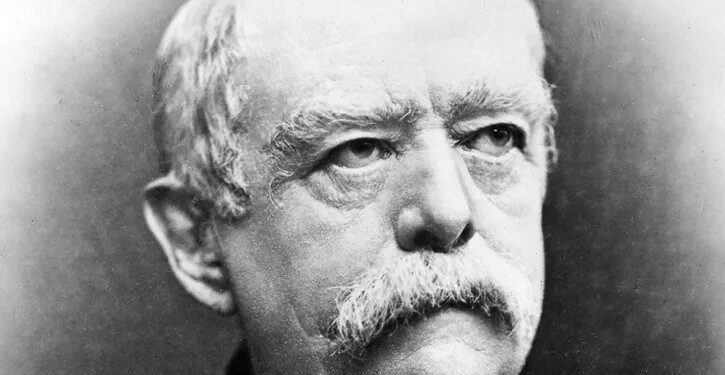Otto von Bismarck (1815-1898) was a towering figure in 19th-century European politics, earning the moniker “The Iron Chancellor” for his forceful leadership and strategic brilliance. As the chief architect of German unification, Bismarck transformed a collection of disparate states into a powerful empire, forever altering the balance of power in Europe.
Born into the Prussian nobility, Bismarck entered politics in 1847. His early career was marked by staunch conservatism and loyalty to the Prussian monarchy. In 1862, King Wilhelm I appointed him Minister President of Prussia, a role that would launch Bismarck’s ascent to power.
Bismarck’s primary goal was to unify the German states under Prussian leadership. He achieved this through a combination of diplomatic maneuvering and carefully orchestrated wars. In 1866, he engineered a conflict with Austria, Prussia’s main rival for German leadership. Prussia’s swift victory in the Austro-Prussian War led to the formation of the North German Confederation, with Bismarck as its Chancellor.
The final step in German unification came with the Franco-Prussian War of 1870-71. Bismarck’s diplomatic skills isolated France, while Prussian military might secured a decisive victory. In the war’s aftermath, the German Empire was proclaimed in 1871, with Bismarck as its first Chancellor.
As Chancellor, Bismarck focused on consolidating the new empire internally while maintaining peace externally. His domestic policies included the suppression of socialists and Catholics, whom he viewed as threats to state power. However, he also introduced progressive social reforms, including health insurance, accident insurance, and old-age pensions – revolutionary concepts for the time.
In foreign affairs, Bismarck crafted a complex system of alliances aimed at isolating France and preserving German hegemony. His “realpolitik” approach prioritized practical considerations over ideology, earning him a reputation as a master diplomat.
Bismarck’s fall from power came in 1890 when the new Emperor, Wilhelm II, dismissed him. The Iron Chancellor’s carefully balanced foreign policy system soon unraveled, setting the stage for the tensions that would ultimately lead to World War I.
Otto von Bismarck’s legacy is complex and contested. While he successfully unified Germany and introduced pioneering social reforms, his authoritarian methods and militaristic nationalism cast a long shadow over German history. Nonetheless, his impact on European politics and the modern nation-state system remains undeniable.
newshub



Recent Comments